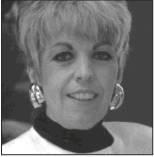Drippin’ Life
July 27, 1918: A day worth celebrating!
Exactly 100 years ago on July 27, the State of Texas took a giant step forward. Many of the state’s men were “over there,” fighting in the First World War. Here at home, many lives had been lost to the rampaging flu epidemic that filled the wards of Brackenridge Hospital with patients, overflowing to large, white tents on the hospital’s grounds.
Yet, a contingent of women – dedicated and determined women -- from Austin and surrounding communities did triple duty – caring for their families, supporting the war effort and lobbying the state legislature for voting rights for women.
In reading the diary of Jane Y. McCallum, wife of the Austin Independent School District’s Superintendent Arthur N. McCallum, Sr., it becomes clear the fight for the vote for women in Texas was no quick or easy feat. Titled, “A Texas Suffragist,” the diary offers a peek into the daily life of Austin area families as well as the heavy lifting by Texas women to finally have a voice in state politics.
The 19th amendment to the Constitution, granting women the right to vote, passed the House in a special Congressional session called by President Woodrow Wilson on May 21, 1919, garnering 42 more votes than necessary. On June 4th, after a long discussion, it passed with 56 ayes and 25 nays. Tennessee was the last of the 36 states to ratify the amendment on August 18, 1920.
Across the country, however, only a few states – as early as 1910 – could vote in city, county or statewide elections.
Until Texas Gov. James E. Ferguson was removed from office (yes, impeached) the summer of 1917, women in the voting booth was nothing but a dream. Ferguson was vehement and vocal in his opposition to the suffragists. Imagine his chagrin when the women mounted the anti-Ferguson movement that influenced his impeachment.
Ferguson’s successor, LtGov.. William P. Hobby, was much more supportive of the women’s movement and saw their support as a possible edge in his upcoming run for election. Call it quid pro quo if you must, but the women were determined and Hobby in their corner certainly wouldn’t hurt.
A called session of the Texas legislature was held in March 1918, after the women had barraged their neighborhoods with hundreds of flyers, written thousands of letters, traveled thousands more miles in unreliable motor cars over rough and rutted roads to make talks to educate the citizens of Central Texas and around the state.
Allowing women to vote only in primary elections didn’t require amending the Texas constitution. It could be granted by simply passing a bill – and San Angelo Rep. Charles B. Metcalf proposed such a bill, which passed the House 84 to 34 and the Senate 18 to 4. Gov. Hobby immediately signed the bill, making women eligible to vote in the upcoming Democratic primary on July 27, 1918.
Because it took 90 days for the bill to go into effect, the women of the Texas Equal Suffrage Association had only 17 days to register women to vote – and by election day 386,000 women across Texas were registered, including women of all ethnicities and non-native-born men and women who had gained citizenship.
When the primary votes had been counted that warm July, the Texas suffragists (they preferred not to be called Suffragettes) had assured Hobby’s election to another term and Annie Webb Blanton (one of their own) as the first woman elected to public office as state superintendent of public instruction.
Women were now a force to be considered in state elections…and in August of that same year, 233 county Democratic conventions embraced women’s suffrage and in September, delegates to the state convention endorsed the women’s right to vote as well.
You probably haven’t heard the names of Jane Y. McCallum, Sallie Williamson, Mrs. Will Hart, Mrs. J.B. Gray, Mrs. Eleanor Brackenridge, Mrs. Frederick Eby, Mrs. Dave Doom and J.A. Jackson.
You may never again read the names of Mesdames John Preston, T.H. Bowman, Nellie Goldman, Elva Claybrook, Minnie Fisher Cunningham, Ella Dibrell, Katherine Vinson. Jessie Daniel Ames and Dr. Anna Howard – but these women, along with hundreds of others worked without sleeping, got up early to perform chores so they could dedicate time to lobbying state and national lawmakers so women of 21st century Texas would have the right to vote.
Please remember them on July 27th.


